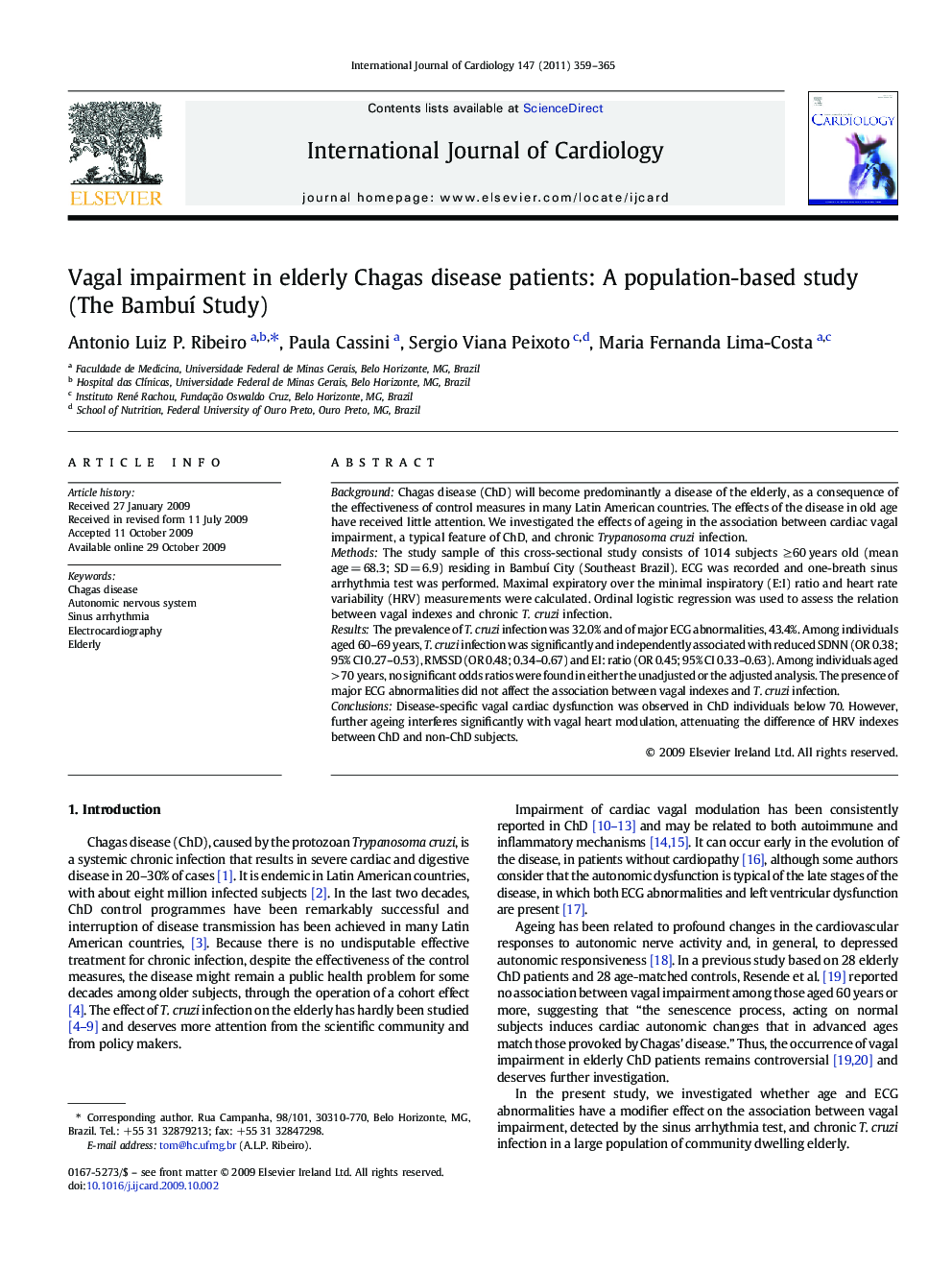| Article ID | Journal | Published Year | Pages | File Type |
|---|---|---|---|---|
| 2931348 | International Journal of Cardiology | 2011 | 7 Pages |
BackgroundChagas disease (ChD) will become predominantly a disease of the elderly, as a consequence of the effectiveness of control measures in many Latin American countries. The effects of the disease in old age have received little attention. We investigated the effects of ageing in the association between cardiac vagal impairment, a typical feature of ChD, and chronic Trypanosoma cruzi infection.MethodsThe study sample of this cross-sectional study consists of 1014 subjects ≥ 60 years old (mean age = 68.3; SD = 6.9) residing in Bambuí City (Southeast Brazil). ECG was recorded and one-breath sinus arrhythmia test was performed. Maximal expiratory over the minimal inspiratory (E:I) ratio and heart rate variability (HRV) measurements were calculated. Ordinal logistic regression was used to assess the relation between vagal indexes and chronic T. cruzi infection.ResultsThe prevalence of T. cruzi infection was 32.0% and of major ECG abnormalities, 43.4%. Among individuals aged 60–69 years, T. cruzi infection was significantly and independently associated with reduced SDNN (OR 0.38; 95% CI 0.27–0.53), RMSSD (OR 0.48; 0.34–0.67) and EI: ratio (OR 0.45; 95% CI 0.33–0.63). Among individuals aged > 70 years, no significant odds ratios were found in either the unadjusted or the adjusted analysis. The presence of major ECG abnormalities did not affect the association between vagal indexes and T. cruzi infection.ConclusionsDisease-specific vagal cardiac dysfunction was observed in ChD individuals below 70. However, further ageing interferes significantly with vagal heart modulation, attenuating the difference of HRV indexes between ChD and non-ChD subjects.
